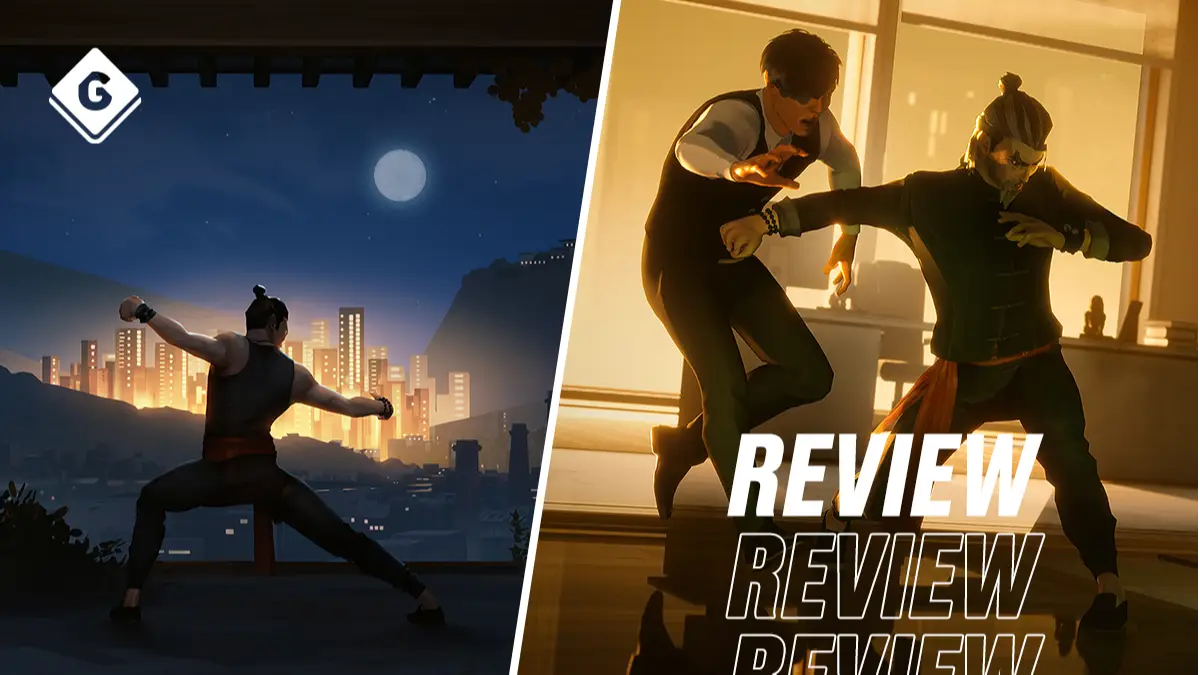
It was years ago now, several PlayStation generations ago, when we were told, in no uncertain terms, that yes, you can kick! Yes, you can also punch! But remember: it’s all in the mind. Playing Sifu in 2022, I’m reminded of Chop Chop Master Onion’s words in the original PaRappa The Rapper of 1996 - because if you just hammer away at your light and heavy attacks in this kung fu-focused tale of revenge, hoping to blunt-force button mash your way to a satisfactory ending, you will have your backside comprehensively handed to you.
Sifu is more refined than your average beat ‘em up, more demanding of its player. It’s a game where not throwing a fist is often more advantageous to your progression than aiming your knuckles at an opponent’s laughing gear. A game where a slow and steady flow will always lead to better results than frenetic action, and there's no cowardice in putting a sofa between you and a would-be assailant. Walk into a room with five, six guys eager to make you eat the floor, and you could try to take them all on at once, spinning out kicks and flailing arms as they encircle you. But the more sensible option is to isolate the weak and take them out, approach everyone individually rather than (deliberately) in pairs or more, and steer clear of the strongest enemies until such a time you can really focus on knocking them senseless. Because Sifu isn’t shy about flashing its game over screen - and any level of adversary is capable of taking you down.
Check out how to fight - and survive - in Sifu in the trailer below
Advert
The ‘you’ in Sifu is a young man or woman who sees their family killed by a group of assassins. A student of Pak Mei kung fu - Paris-based developers Sloclap worked with a Pak Mei (also known as Bak Mei, or Pai Mai) master to ensure the protagonist’s movements were as correct as they can be - they set out on a trail of vengeance, and at the beginning of the game the groundwork is already laid: we know who the five targets are, and where the five targets are, it’s just a case of reaching them, and ending them. Right. Like it’s that simple.
Each of the five stages has you running a gauntlet through an array of lesser opponents, regularly encountered in groups, and some stronger mini-bosses; and it’s only after defeating what feels like hundreds of enemies that you’ll face off against that level’s end boss. Here is where that patience, that discipline of the slow and steady, the studied dance between attack and defence, parries and dodges, really comes into its own. It’s also here where Sifu slides from reality to fantasy, as the world around you and your enemy bleeds out into something, somewhere, else entirely. Not that you have too much time to really drink it in, as one step wrong and your health bar can get absolutely wrecked - it’s only topped up, barely, by some context-dependent takedowns - and in Sifu there are no second chances.
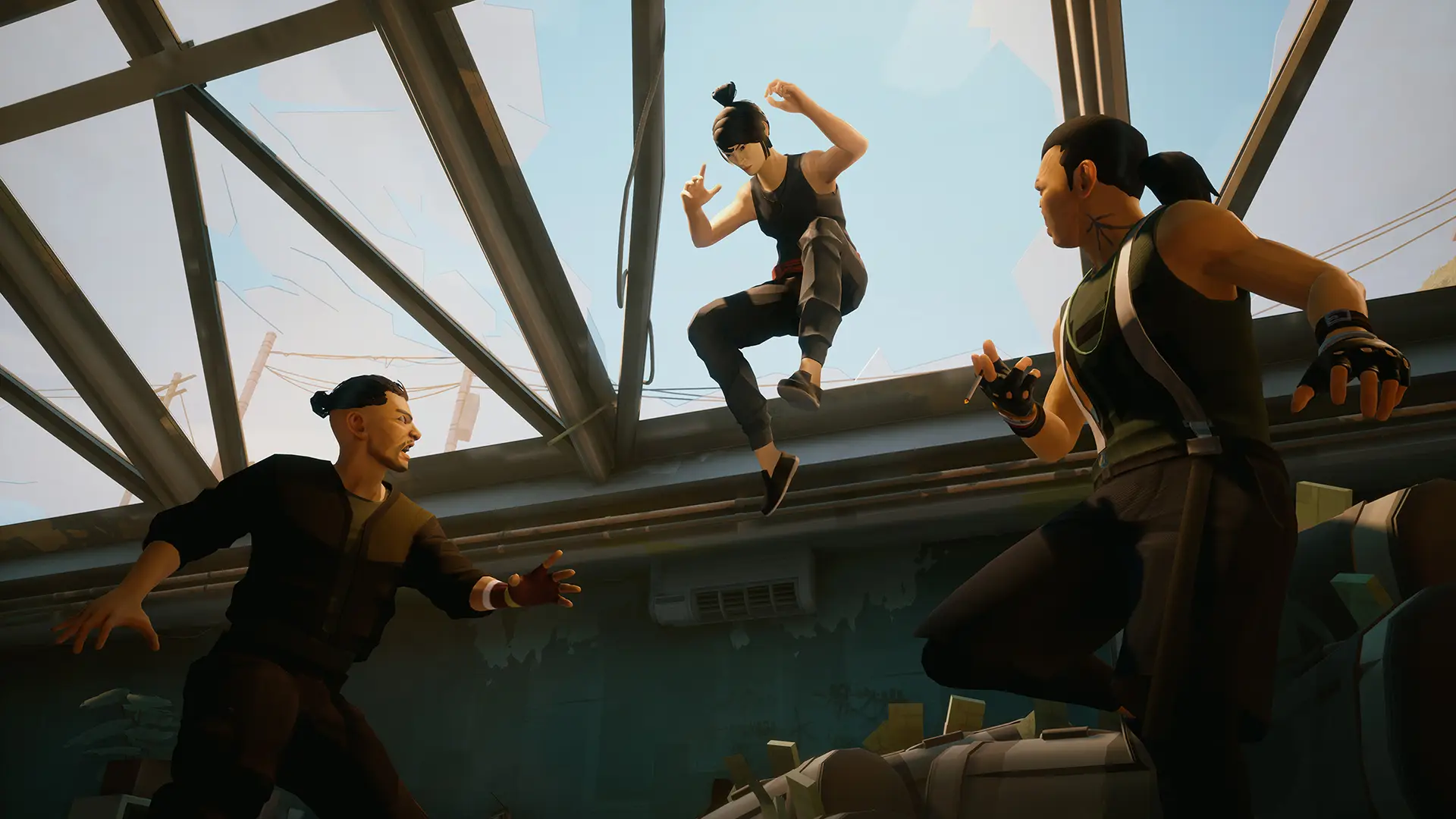
At least, there are no second chances without a significant sacrifice being made. Get back up from a KO and the game will strip life from you - quite literally. The protagonist begins the first screen of the first stage aged 20 years old. Lose your life bar and the game will ask you: want to get back up? It’s your first defeat, so it’ll cost you one year; up you go to 21. The next time, it’s two years added, up to 23. Three, up to 26. Four, and you’re into your 30s. There are ways to reset your death clock to zero, but these take a lot of XP and are only activated at the few shrines found in each stage, and they won’t de-age you at all - you’ll just not age so rapidly, when you’re beaten down next. With each passing decade, your health bar shrinks but your raw power increases - your fists hit harder as a 50-something, but you can take far less punishment than you did in your 30s. Reach your 70s and while you can still duck and weave, and sweep the legs and stab at the eyes, just one successful combo that breaks your defences will bring up a striking red game over screen. No returning from that one.
Every new stage will reset you back to the start of the decade you finished the previous one at. Which is to say you might go into the second level, set in a neon-soaked club, in your 30s or 40s; and the next in your 40s or 50s. This doesn’t bode well - the challenges ahead will only get tougher, so it’s advisable to practise, practise, and practise some more until you can take the first boss, Fajar, down while staying in your 20s; and the next, Sean, ideally without ageing any further. Come up against the artist Kuroki, the final encounter of the third stage, as a sexagenarian, and it’s incredibly unlikely that your complete revenge will be achieved.
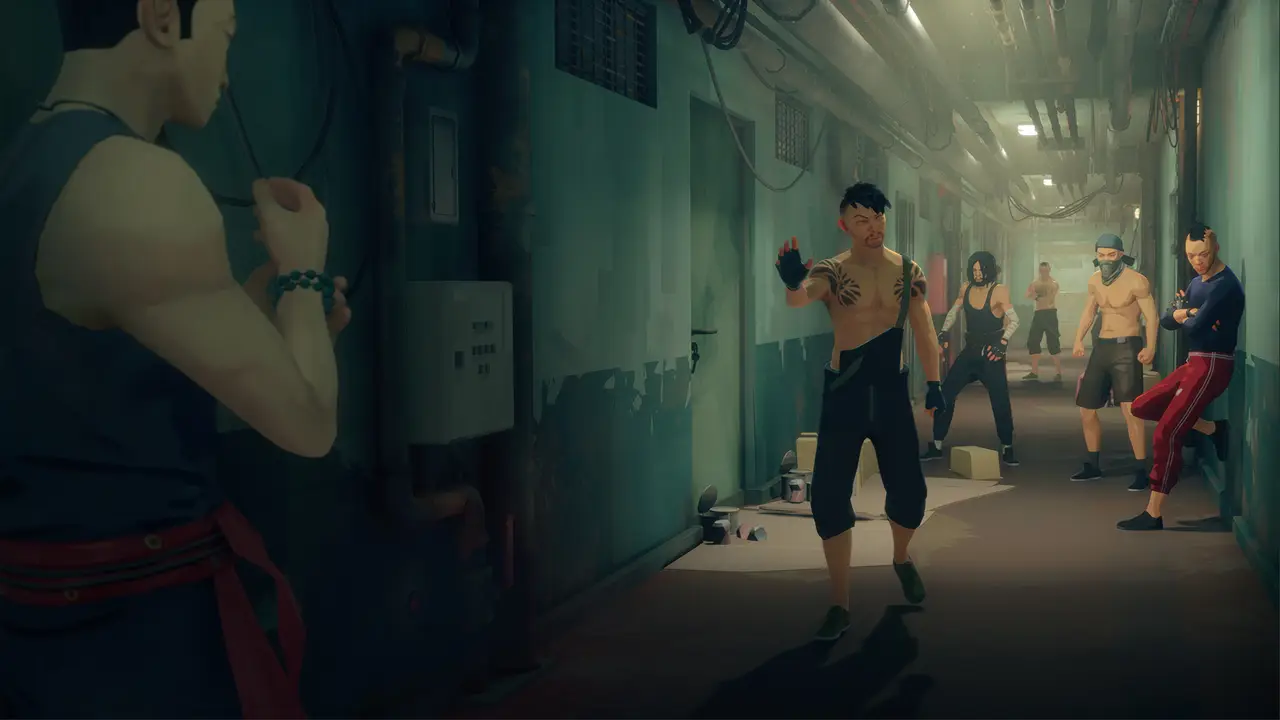
I’m still not sure how I feel about this system - it might be that the option, at least, to reset your age at the start of each level might make for an experience of far wider appeal, as Sifu will send a lot of players fleeing from its high difficulty (don’t say the DS words, don’t say the DS words). Perhaps that’s a patch for later down the line to let those without the time to fully learn Sifu’s particular ins and outs to enjoy its delightful art and smart level design, and the bone-crunching satisfaction of laying waste to a dozen angry grunts; or, Sloclap will stick with the git gud attitude that emanates from this game from its first few bouts of regimented fisticuffs. There are at least some skills that can be permanently unlocked, giving you a few new offensive moves for a fresh run; and shortcuts can be found in levels, allowing you to bypass some fights on the next attempt.
The basics of Sifu’s combat are simple enough on paper. There’s your strong and weak attacks; a block button which if tapped at just the right time will parry an opponent’s attack, leaving them vulnerable; and a dodge, which is important for getting some distance between you and a group of adversaries. Holding the block button and flicking the left stick also lets you duck under high attacks and hop over sweeps, if you get the timing right; and a focus bar (easy to forget about, as it’s a tiny thing down in the button left of the screen) will fill over time and allow you to slip in a special attack, which is initially some fingertips to the eyeballs and later encompasses weapons-specific moves. (Weapons, by the way, do break over time, so you can’t scoop up a chunk of metal and keep hold of it throughout a stage.)
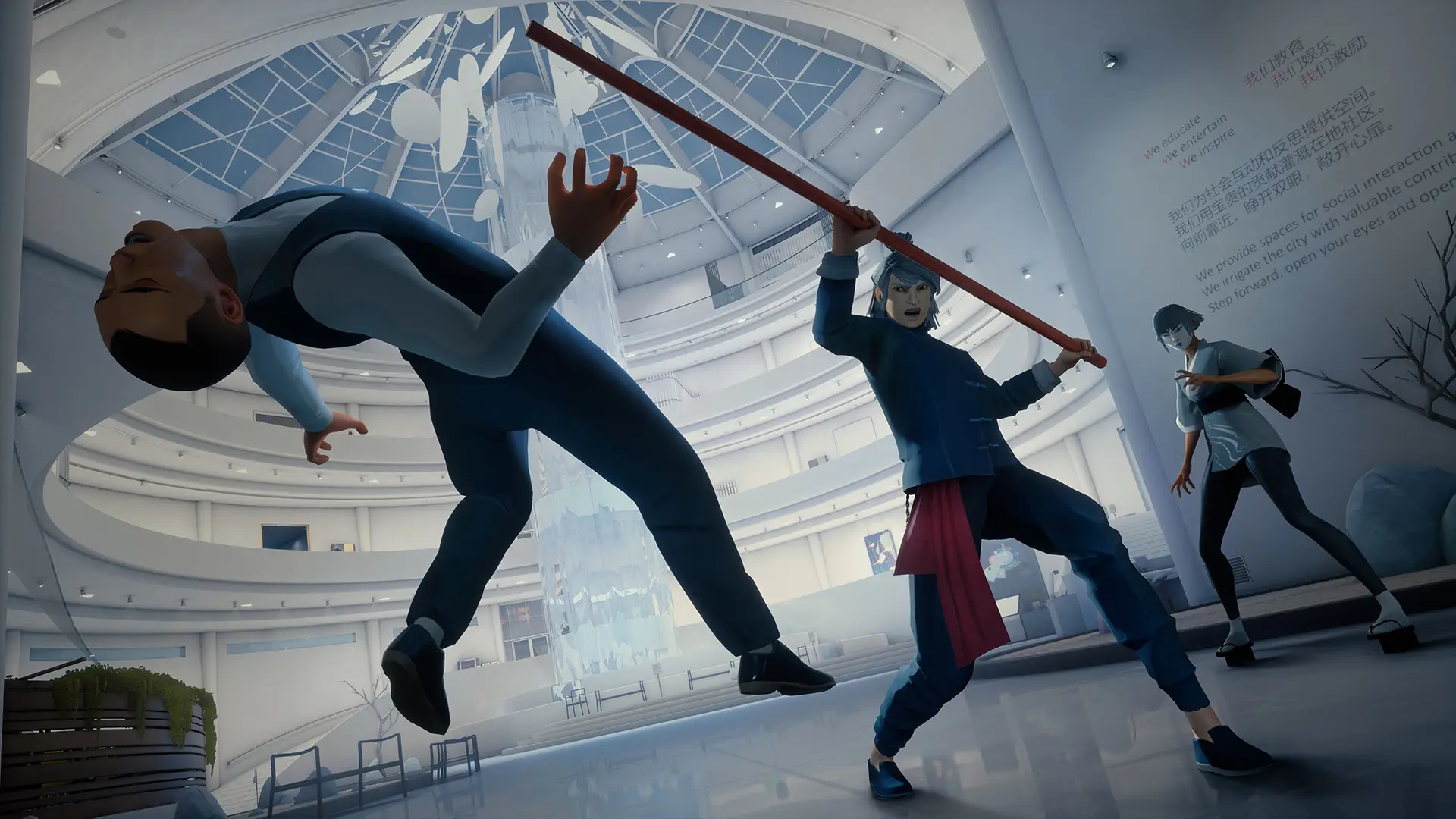
Blocking doesn’t last forever - you have a ‘structure’ to protect, which when shattered will leave you unable to defend against the next incoming foot or fist, or broken bottle or iron bar. All enemies have one of these bars too, but it can be chipped away not only by attacking them but also breaking their combos, their rhythms, leaving them off balance. To really succeed in Sifu, every single enemy needs to be treated with respect - their patterns need to be observed, and their pauses for breath noted, for optimum payback.
Simple on paper, then, but tough to consistently put into practice - which is why it’s sometimes better to back away, and a little more, than just wail on the punch button. More complex attacks, activated with combinations of stick and face buttons, and advanced weapon techniques can be unlocked in each run - and ultimately kept permanently, which does make subsequent runs a little kinder - but in the fury of battle, these aren’t always easy to time correctly, despite the game maintaining a consistent 60 frames per second (on PS4 Pro, at least, everything runs buttery smooth). A sparring partner is available in your protagonist’s between-stages training hall, but it’s easy to put them on their arse over and over again without the pressure on, and quite something else when you know two more hits are going to floor you.
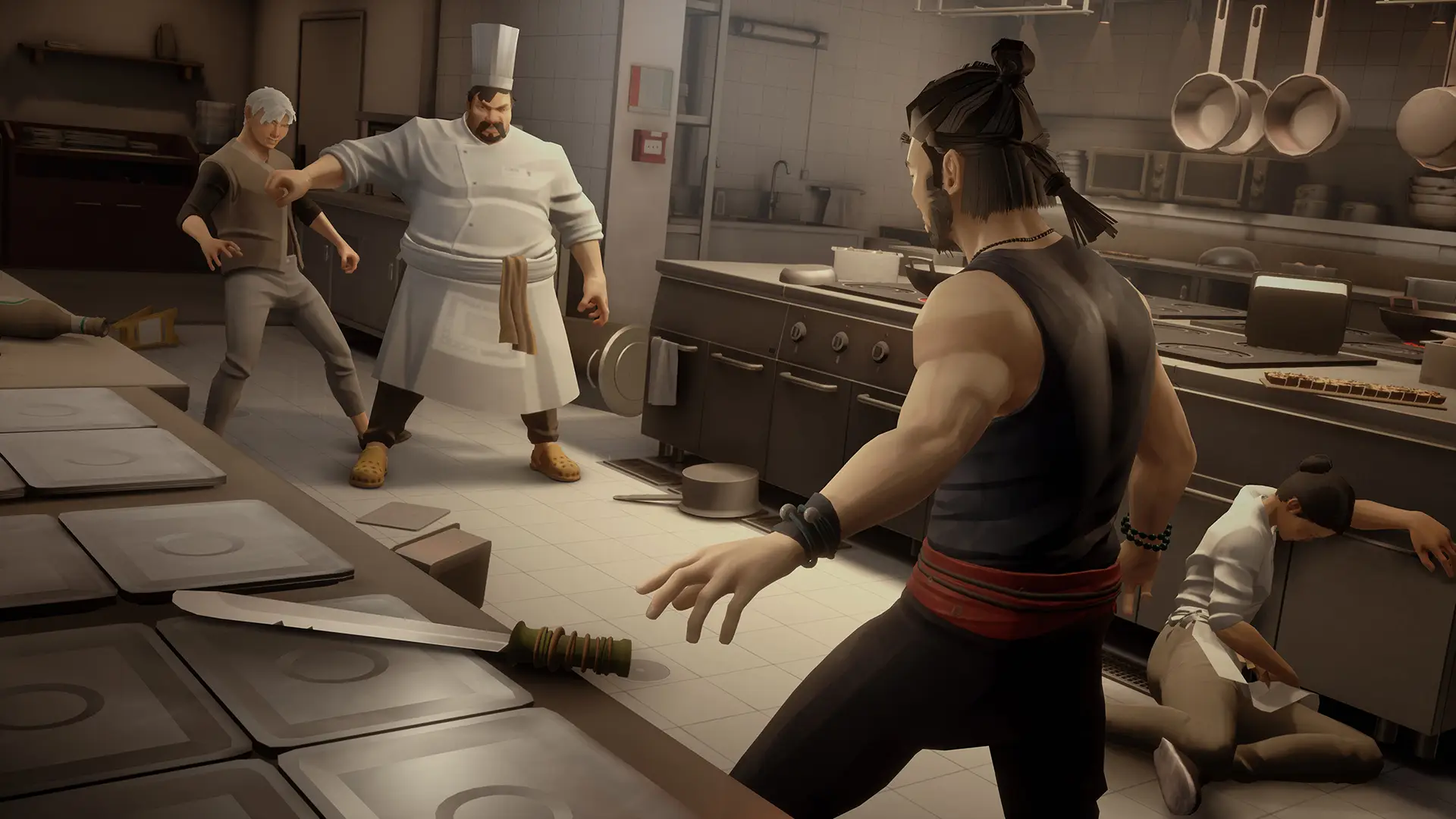
On top of the moment-to-moment action, Sifu is a sumptuous game to look at. Its painterly style never fails to fill the screen with a certain rough and ready beauty, while a handful of set pieces - you may have seen a very Oldboy-looking corridor encounter, shifted to a side-on perspective, in trailers - will have you cracking a smile even as your teeth are being broken. Voice acting is slight but effective - you can occasionally select different dialogue options, before a bout - and every blow sounds as authentic as I imagine it to be. It’s not like I’m going to go outside and start a fight, to know for sure.
Sifu is an articulation of dedication to a cause: not the thirst for revenge, but the willingness to learn and adapt, to grow over time and respond in the moment. It’s an intense conversation between makers and players, eye contact absolute, where your path is only ever streamlined but how to get there is full of ever-changing options you need to process on the fly. It’s a beat ‘em up unlike many, clearly taking some cues from Sloclap’s previous multiplayer fighter Absolver, but also leaning into the refined rawness of the cult brawler God Hand (albeit without the tomfoolery of Capcom’s game) and the more demanding end of the belt-scroller scene: think River City Girls or Streets of Rage 4 at their most testing, with your health at a premium and your heart pounding.
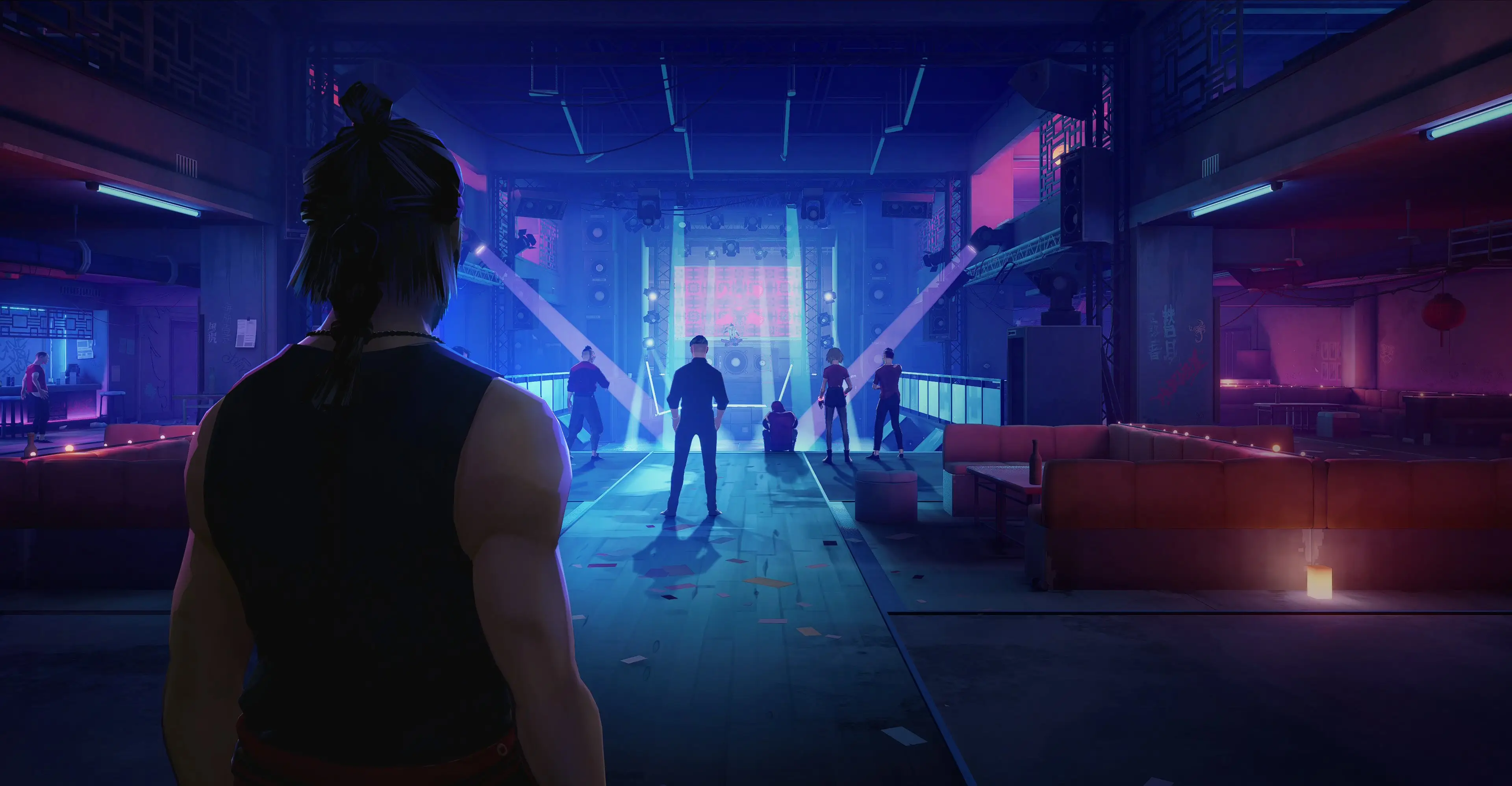
Like Master Onion himself, Sifu has layers - and the closer you get to its centre, the more you understand its own structure, what makes it and its many obstacles tick. The closer you get to it, the clearer the details between the deckings. And just like a peeled onion, it might well make you cry. There’s no shame in that, here - but you’d best accept up front that it’s not going to get any easier, or sting any less, the more you slice into it.
Pros: wonderful art style; focused combat with a small but effective set of available abilities; sound design really packs a punch
Cons: ageing mechanic will see your first few deep runs feel worthless; no concessions made for anyone without time or patience to play the same levels multiple times
For Fans Of: Street Fighter-style competitive fighting games, higher-difficulty beat ‘em ups, God Hand without the goofy gags
7/10: Very Good
Sifu is released for PlayStation 4 (version tested, on PS4 Pro), PlayStation 5 and PC on February 8 2022. Review code provided by the publisher. Find a guide to GAMINGbible’s review scores here (a 7 from us means exactly what it says up there, that this is a very good game, not an average one).
Topics: PlayStation, Indie Games, PC
